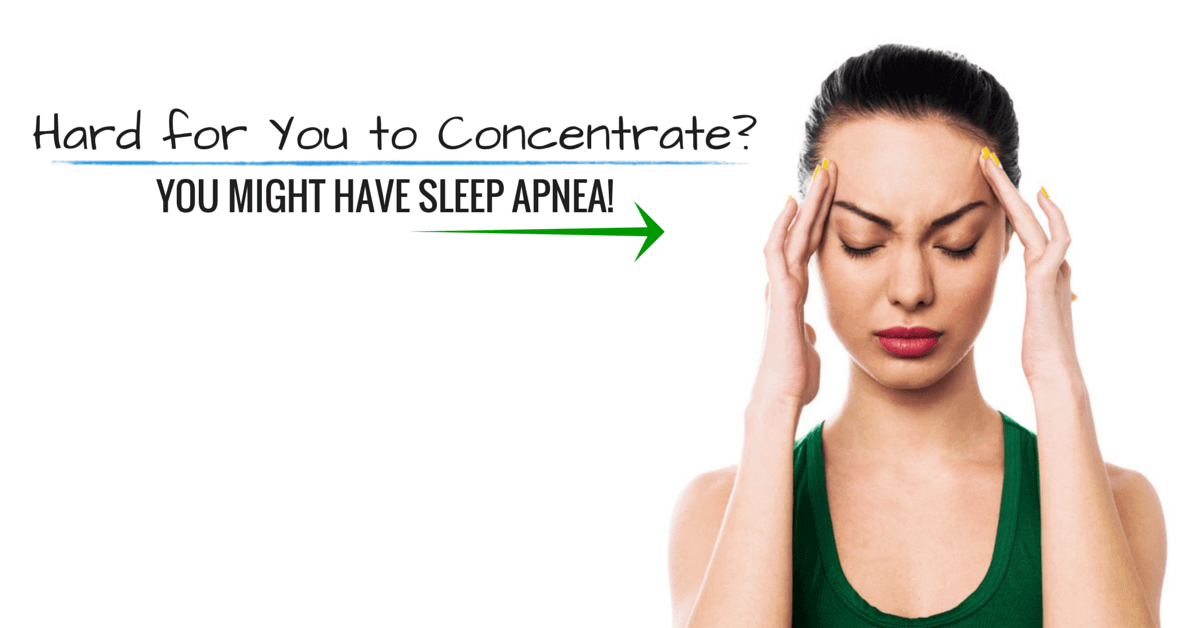
For some people, it takes an unusual event – like pulling an all-nighter to cram for an exam, or getting roused by a fire alarm in the building – to realize the importance of a good night’s sleep. Sandy-eyed, they stumble through the day only to collapse on the couch as soon as they get home.
But for people with Sleep apnea, this is what every day looks like. If you find yourself struggling to get through your workday, or have difficulty focusing because you’re so tired, you may have sleep apnea.
What is Sleep Apnea?
Sleep apnea is considered a serious sleep disorder because it can cause complications involving the heart, liver, and blood pressure. Sleep apnea occurs when your breathing repeatedly stops and starts throughout the night.
According to the Mayo Clinic, there are two main types of sleep apnea:
- Obstructive sleep apnea, the more common form that occurs when throat muscles relax
- Central sleep apnea, which occurs when your brain doesn’t send proper signals to the muscles that control breathing
Symptoms of Sleep Apnea
You may have sleep apnea if:
- You snore a lot, to the point that it wakes you or others up
- You feel tired all day, even though you’ve had a good 7 or 8 hours’ sleep
- You wake up a with a dry mouth, sore throat, headache, or chronic body pain
- You fall asleep, but you can’t stay asleep throughout the night
- You urinate frequently throughout the night
- You have difficulty concentrating or paying attention to your daily tasks
- You fall asleep unexpectedly while watching daytime TV or even driving
Preventative Sleep Apnea Treatment
As with many other medical conditions, while some risk factors like genetics and age are beyond your control, there are common-sense things you can do to reduce your sleep apnea symptoms or even decrease your susceptibility.
- Lose weight
- Don’t consume alcohol, sedatives or tranquilizers
- Quit smoking
- Control nasal congestion
Why Sleep Apnea Treatment is Necessary
It may seem hard to believe that snoring can be a serious problem – especially if you live alone! The problem isn’t so much the noise as the fact that it can signal an obstructed airway.
Obstructive Sleep Apnea
The more common obstructive sleep apnea actually narrows or even closes your airway, lowering the amount of oxygen in your blood to dangerous levels and prompting you to wake up so you can reopen your airway.
You may wake up so briefly that you don’t even remember it, yet this disruption is sufficient to prevent you from reaching the deep restorative sleep states we all need to function properly.
Central Sleep Apnea
A rarer type of sleep apnea is central sleep apnea. Caused by the brain failing to transmit signals to your breathing muscles, the most common factor is heart failure, and it is most commonly seen among people over 65.
Both types of sleep apnea require treatment, whether it be nasal decongestants, mouth devices that prevent your tongue from falling back and blocking your throat, or even surgery to open your airway.
Do You Need Treatment in Order to Sleep Better?
Losing sleep means more than just feeling tired the next day. The health risks mean you should consult with a sleep expert who can identify the right solution for you.
At Houston Sinus & Allergy, we assess patients for the severity of their condition, and determine a treatment that will allow for a restful sleep. Learn about the Sleep apnea treatments we provide that have helped countless patients with sleep apnea, or Book an assessment with our experienced ENT, Dr. Nguyen, and start sleeping well again.

